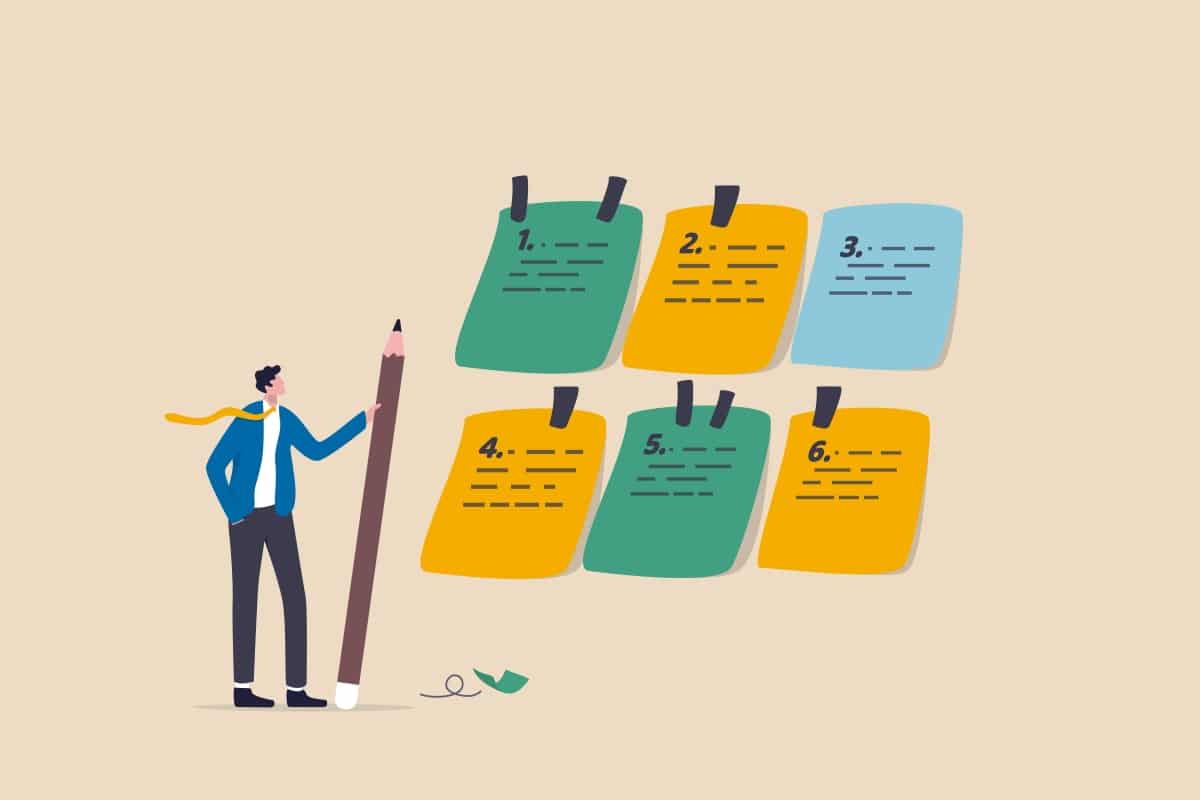The death of a spouse is one of the most challenging times a person can experience. Yet, for many bereaved widows and widowers, they cannot focus on grief immediately. Several actions must be taken promptly to ensure the financial stability of the surviving spouse and the deceased’s beneficiaries.
Planning ahead can ease the stress for your loved ones. In this article, we will outline five key actions that must be taken after a spouse passes away.
Key Takeaways
- When a spouse dies, the remaining partner must acquire key paperwork details and notify specific agencies.
- In the modern world, there are additional considerations, such as identity theft protection and internet profiles that will need to be closed.
- Financial and estate planning offers a way to reduce the burden on your partner in the event of your passing.
The Immediate Tasks
There are some items that must be done almost immediately after death, and cannot be written down in advance. You can expect these four actions:
Obtain a Death Certificate
The most important thing after the death of a spouse is to obtain a death certificate. A death certificate is required to do almost anything with the deceased’s estate, including transferring accounts to beneficiaries.
To obtain a death certificate, many states have an online portal you can use. However, it is often faster and cheaper to obtain the death certificate via the county office.
Secure the Home and Belongings
Lock up the home and secure any valuable items, such as jewelry. You may also want to store important documents and valuables in a safe place. In some cases, it may be worth it to change locks or home security codes.
Securing your home will enable you to visit with funeral, legal, and finance professionals freely. This step can also prevent potential family members and friends from attempting to enter the home and claim items from the deceased.
During this time, you may also choose to discard perishables if you plan to be away from the house for an extended period.
Get Financial Help
Sadly, there are con artists who use the obituaries to target those who have lost a spouse. They will pitch all sorts of great-sounding solutions, and you will be especially vulnerable, even if you’re normally a financially savvy person, due to your grief.
Find a 100% objective fiduciary advisor – even if just to have that valuable second opinion. Do not use any “advisor” who sells financial products. Hopefully, you will already have an advisor in mind. However, if you do not, you will want someone with a legal obligation to put your interests first.
Get Legal Help
Typically, settling an estate will require several forms to be completed and filed with the IRS. Most people have no experience with the process or these forms. Attempting to complete this paperwork alone can be incredibly stressful and increase the likelihood of making a crucial mistake. Following an estate planning checklist can help but it’s still wise to seek advise.
Working together with a lawyer and financial advisor, you can more easily navigate the bureaucratic complexities. Many of the decisions and estate allocations the lawyer will need to make and indicate on the forms have significant tax ramifications for the future. This is where the financial advisor offers additional guidance. Lawyers know the law, but typically are not experts on managing assets and future tax liabilities.
Notifying Important Parties
Next, you’ll need to notify certain organizations of your spouse’s passing.
Employers, HR Departments, and Health Professionals
Notify your spouse’s employer and HR department of the death. This is the time to ask about benefits, pension, and life insurance policies. Depending on their benefit package, you may be eligible for survivor benefits.
The employer may request a death certificate or simply a funeral pamphlet. If you are still working, you will also want to request bereavement leave.
Additionally, it is essential to inform your spouse’s healthcare professionals of your spouse’s death.
Insurance Companies
The most important insurance company to contact is your spouse’s life insurance carrier. Contact life insurance companies to file a claim. Ask about benefits and how to remove your spouse’s name from policies. Ask them to search for all policies and annuities based on the deceased’s SSN.
You will also want to notify health, home, and auto insurance companies of the death.
Typically, insurance companies will require a death certificate.
Government Agencies
Finally, you will want to inform the Social Security Administration of the death. Depending on your spouse’s network, you may need to call additional government agencies, such as the Veterans Administration. As with insurance policies and pensions, it’s important to ask about survivor benefits.
Here’s a more complete list of government agencies to notify after a spouse’s death.
Managing Finances
Next, you’ll also need to ensure you have access to cash – especially if you have a joint account. Ideally, you should have a personal account and cash on hand in the event of an emergency or account freeze.
Update Bank Accounts and Credit Cards
First, you’ll need to close your spouse’s individual accounts, including credit cards and bank accounts. It’s important to alert the major credit bureaus of the death to prevent fraudulent activity. Then, you’ll want to update joint accounts at your bank(s) and brokerage firm(s) to reflect the change in ownership.
Don’t forget to ask each bank or brokerage firm to do a search based on SSN to locate potentially “missing” accounts. This will prevent you from overlooking potential funds.
Review and Manage Benefits
You’ll want to review your insurance policies, benefits, and pension options, ideally with the help of your financial advisor.
A qualified financial advisor can help sift through all the benefit options and decode potentially complex policies. It’s common to have several payout options, and they can be confusing. At the same time, your payout choice could be irreversible and will impact your tax burden. It’s important to get help to make a well-informed decision.
Practical Considerations
You will also need to contend with additional concerns, such as expenses during the grieving period and the risk of identity theft. In today’s day and age, you will need to handle social media profiles, emails, and additional online identities.
Short-Term Expenses
Identify the short-term expenses, such as bills and taxes, that you will have to pay before/during the settlement of the estate, and ensure you have sufficient liquidity to cover them. There are often delays in getting access to your spouse’s bank accounts, but you still have to pay bills and taxes when they are due.
Ensure you have access to at least one bank account immediately, even if you need to open a new one yourself. You need a place where your liquidity is secure and cannot be restricted by the bank as it processes the forms related to your spouse’s death.
Here again, a qualified objective financial advisor can help determine what liquidity will be needed and can help open/manage your liquidity account.
Identity Theft Protection
As stated earlier, contact one of the three major credit bureaus to notify them of the death.
Cancel your spouse’s driver’s license, passport, and close their email accounts. You can have all inbound emails redirected to your email so you don’t miss anything.
If you suspect that your spouse’s identity is being targeted, consider hiring a professional to assist with identity theft protection.
Take Time To Gather Information and Process
There are many types of financial accounts and taxing agencies, such as property tax agencies, which send out statements on a quarterly, semi-annual, or even annual basis. Watch the mail closely to identify assets, liabilities, and bills that you might not know about.
Despite all of the decisions that need to be made, resist the urge to make major decisions. You should take your time deciding where to live, whether to downsize, how to structure your investment assets, and how to move forward. Give yourself time to grieve. Going through the mourning process will make it easier to make big decisions later on.
Long-Term Planning
Eventually, you’ll need to transition into the next phase of your life. It can be helpful to take additional steps to boost morale and financial security.
Financial Planning and Estate Management
When it comes time to make big decisions and restructure your finances for this new chapter, objective and experienced advice will make the process much easier and more effective.
Together with a trusted advisor, it’s important to update your estate plan, beneficiary designations, healthcare directives, and other legal documents. Being prepared will make it easier on your loved ones when you pass away, but it can help you avoid probate court, which is not only time-consuming but can consume up to 10% of your estate.
You may also decide to review your tax situation to see if you need to change tax withholdings and determine if you’re eligible for tax benefits.
Ongoing Support
Your financial advisor should be able to provide ongoing support, helping you stay organized and keep track of important documents and deadlines.
However, it’s also important to consider using short-term assistance with day-to-day tasks, such as household chores and meal preparation. Too many widows and widowers fall into poor health because they don’t take care of themselves and learn how to pick up the household chores their spouse used to do.
Next Steps
When a loved one dies, it can feel like you have a complete and never-ending list of paperwork. As important as these tasks are, it’s important to take a step back and give yourself the space to grieve. Handle the immediate decisions – and leave the rest for later.
And when you’re ready, hiring legal, financial, and household help can provide you with the support you need to more easily transition from this period of mourning. The future will be “different,” but you still have control over what it will look like.
Of course, the best way to minimize the burdens of bureaucracy is to prepare for them in advance. You can consult with a financial advisor ahead of time and prepare your estate, together with your partner.
At First Financial Consulting, we only offer 100% objective advice. If you are dealing with the passing of a spouse, and need help, please don’t hesitate to reach out.
Greg Welborn is a Principal at First Financial Consulting. He has more than 35 years’ experience in providing 100% objective advice, always focusing on the client’s best interests.
Greg Welborn is a Principal at First Financial Consulting. He has more than 35 years’ experience in providing 100% objective advice, always focusing on the client’s best interests.


